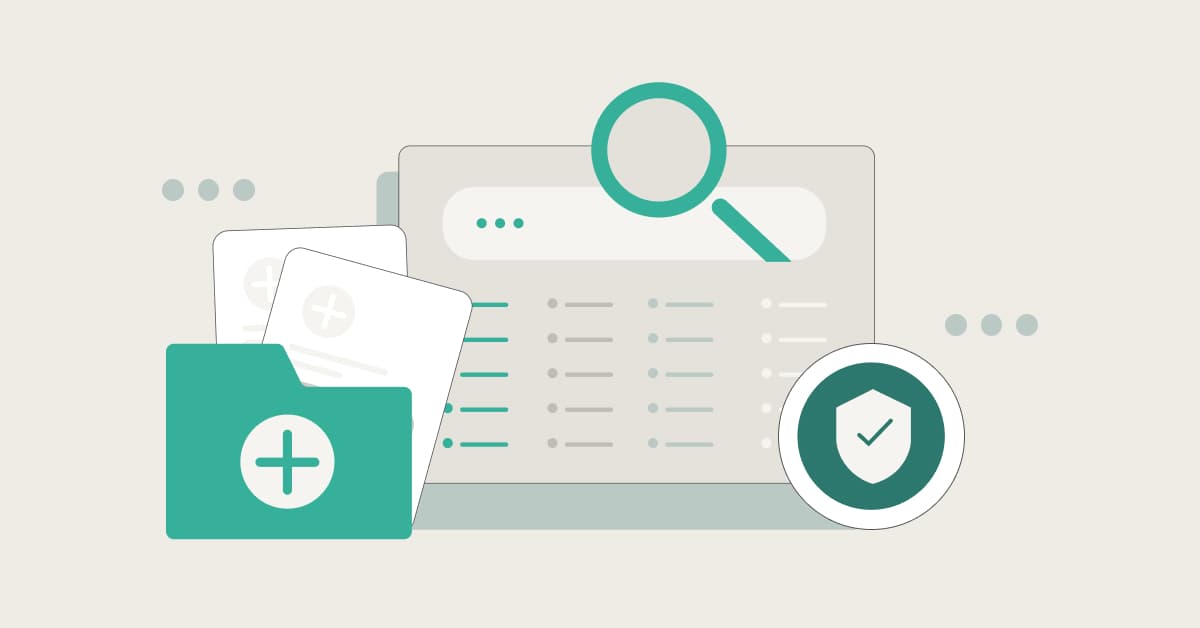As part of a personal injury legal team, your job is to present a zealous case on behalf of your client. This largely involves building an airtight case in your client’s favor that is backed up by strong evidence. To build a successful case, medical records are often necessary. These records are essential evidence to support your clients’ claims and contribute to the overall success of your cases. Importantly, medical records are used to assess damages giving you the framework in which to receive compensation for your client.
However, medical records retrieval can be a time-consuming and frustrating experience. To make requests for medical records as simple and expeditious as possible, follow our six tips for legal teams retrieving medical records.
Contents
Utilize secure online platforms to communicate with healthcare providers and request medical records electronically
Increasingly, online platforms are used by healthcare providers to make accessing records easier, faster and with less errors. Legal staff can take advantage of these online platforms to request medical records for clients in a way that is secure and easily trackable. This makes scheduling tasks and follow-up actions a breeze as you can easily tell what a record is, where it is coming from, and where it needs to go.
Include all necessary information in your medical request
Including all the necessary information in your request is vital, as it ensures that you receive the proper medical records in a timely manner. Information that should be used in every request includes:
- Patient’s full name
- Date of birth
- Specific records you need
- Legal authorization
By supplying all the necessary information upfront the first time, you can get a faster turnaround time for receiving the medical records and ensure that records aren’t omitted from your discovery.
Ensure that your staff is knowledgeable about HIPAA regulations
Handling medical records necessitates strict adherence to the Health Insurance Portability and Accountability Act (HIPAA) regulations.
HIPAA was enacted in 1996 and establishes standards for the electronic exchange, privacy and security of health information. The Act applies to any health care provider who transmits health information in electronic form in connection with transactions for which the Secretary of Health and Human Services (HHS) has adopted standards.
Under HIPAA guidelines there are two types of information: individually identifiable health information and de-identified health information.
Individually identifiable health information is protected and includes:
- The individuals past, present or future physical or mental health or condition;
- The provision of health care to the individual; or
- The past, present, or future payment for health care to the individual
De-identified health information is not protected as it neither identifies nor provides a reasonable basis to identify an individual. There are two ways to de-identify documents. You can either get a formal determination by a qualified statistician or remove specified identifiers of the individual, the individual’s relatives, household members and employers. The information is only considered de-identified if the entity has no actual knowledge that the remaining information could be used to identify the individual. A common way of de-identifying information is through redaction.
Ensuring that your staff is well-versed in HIPAA guidelines maintains patient confidentiality during the retrieval process. You should always prioritize data security to avoid complications down the road.
Use case management software
Personal Injury Case Management Software are a great way to stay organized. These systems can be used to categorize, tag and label records. Having a centralized digital repository and legal document management system allows for quick and easy reference, reducing the time spent searching for specific documents. It also makes creating medical records summaries and calculating damages much faster and easier.
Take advantage of collaborative tools and secure platforms
Collaborative tools and secure legal cloud-based platforms for sharing medical records enable quicker decision-making and improved teamwork. It allows your team to easily build a case, working cohesively and efficiently. Collaborative tools and secure platforms also give you peace of mind that all the records you need are in a secure location and are accessible by the whole team at any time.
Explore the ways CloudLex can accelerate the retrieval process
CloudLex helps you accelerate and streamline the medical retrieval process by enabling you to organize data in a centralized place, allowing for quick and easy reference and reducing the time spent searching for specific documents. By becoming more efficient and productive, you can repurpose the energy you would have spent on medical records to advocating for your clients. Best of all, you never have to worry that your medical records are omitted – with CloudLex, we take the stress out of medical records retrieval.
By using these six simple steps, you can ensure that your team is compliant with HIPAA standards, efficient in their medical records retrieval and organized with the help of CloudLex. If you’re interested in what CloudLex can do for you, contact us to speak to one of our representatives.

